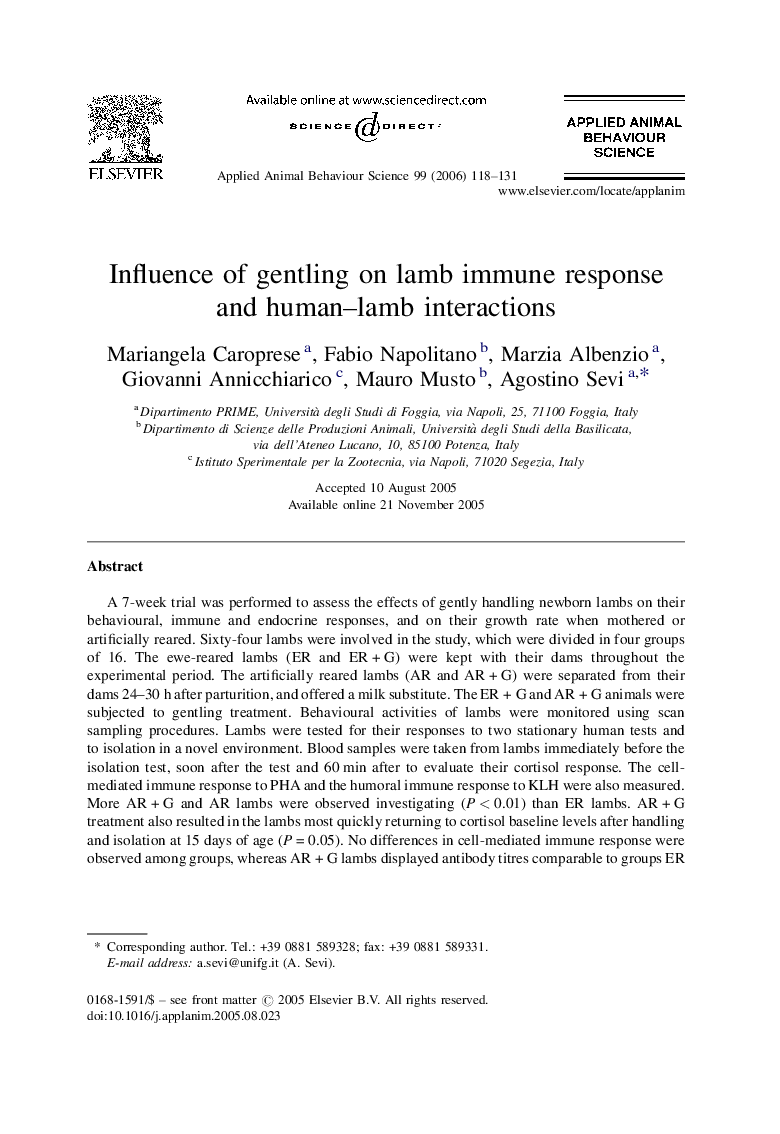| Article ID | Journal | Published Year | Pages | File Type |
|---|---|---|---|---|
| 4524206 | Applied Animal Behaviour Science | 2006 | 14 Pages |
Abstract
A 7-week trial was performed to assess the effects of gently handling newborn lambs on their behavioural, immune and endocrine responses, and on their growth rate when mothered or artificially reared. Sixty-four lambs were involved in the study, which were divided in four groups of 16. The ewe-reared lambs (ER and ERÂ +Â G) were kept with their dams throughout the experimental period. The artificially reared lambs (AR and ARÂ +Â G) were separated from their dams 24-30Â h after parturition, and offered a milk substitute. The ERÂ +Â G and ARÂ +Â G animals were subjected to gentling treatment. Behavioural activities of lambs were monitored using scan sampling procedures. Lambs were tested for their responses to two stationary human tests and to isolation in a novel environment. Blood samples were taken from lambs immediately before the isolation test, soon after the test and 60Â min after to evaluate their cortisol response. The cell-mediated immune response to PHA and the humoral immune response to KLH were also measured. More ARÂ +Â G and AR lambs were observed investigating (PÂ <Â 0.01) than ER lambs. ARÂ +Â G treatment also resulted in the lambs most quickly returning to cortisol baseline levels after handling and isolation at 15 days of age (PÂ =Â 0.05). No differences in cell-mediated immune response were observed among groups, whereas ARÂ +Â G lambs displayed antibody titres comparable to groups ER and ERÂ +Â G, and higher than AR lambs throughout the trial (PÂ <Â 0.05). Results suggest that gentling may be properly used in artificial rearing programs of lambs in order to sustain lamb immune function and reduce the risk of disease.
Related Topics
Life Sciences
Agricultural and Biological Sciences
Animal Science and Zoology
Authors
Mariangela Caroprese, Fabio Napolitano, Marzia Albenzio, Giovanni Annicchiarico, Mauro Musto, Agostino Sevi,
